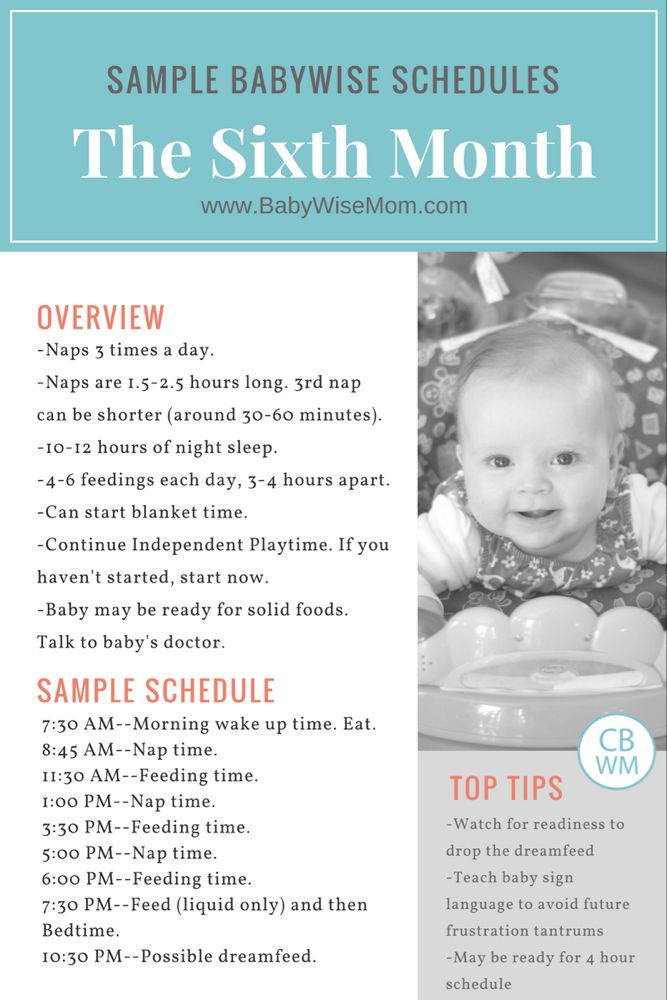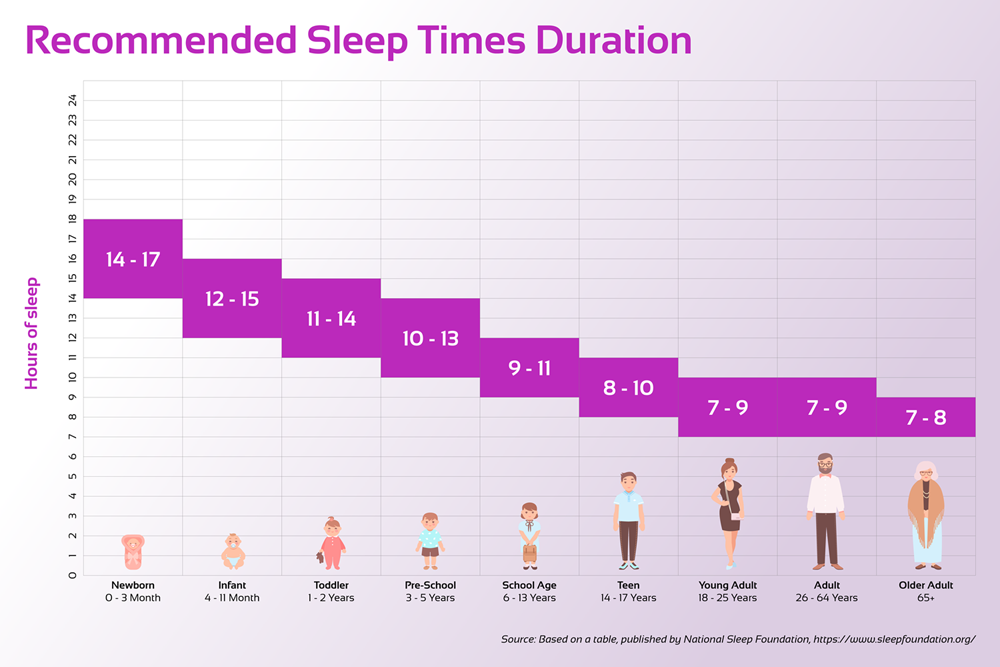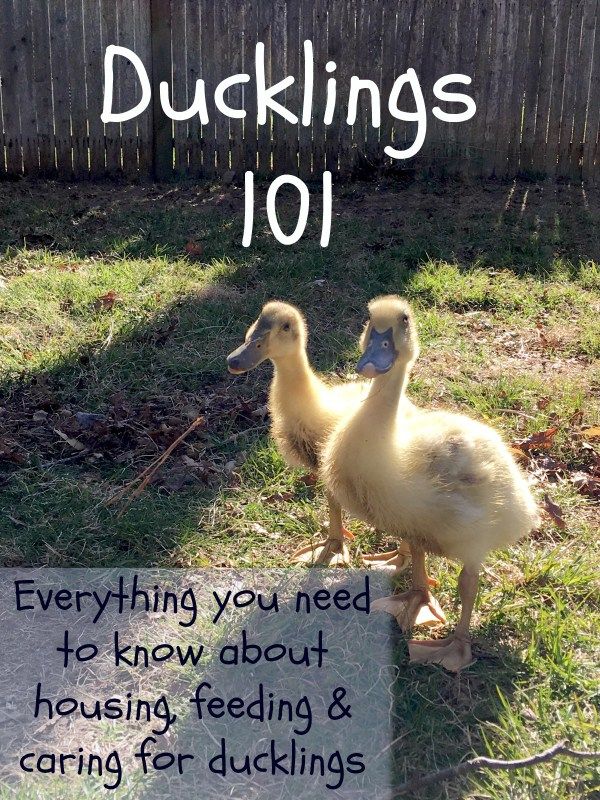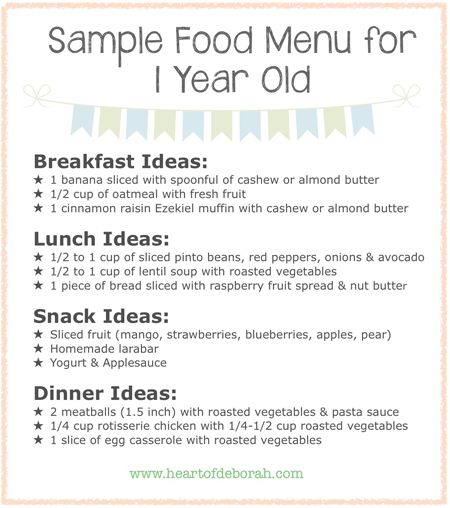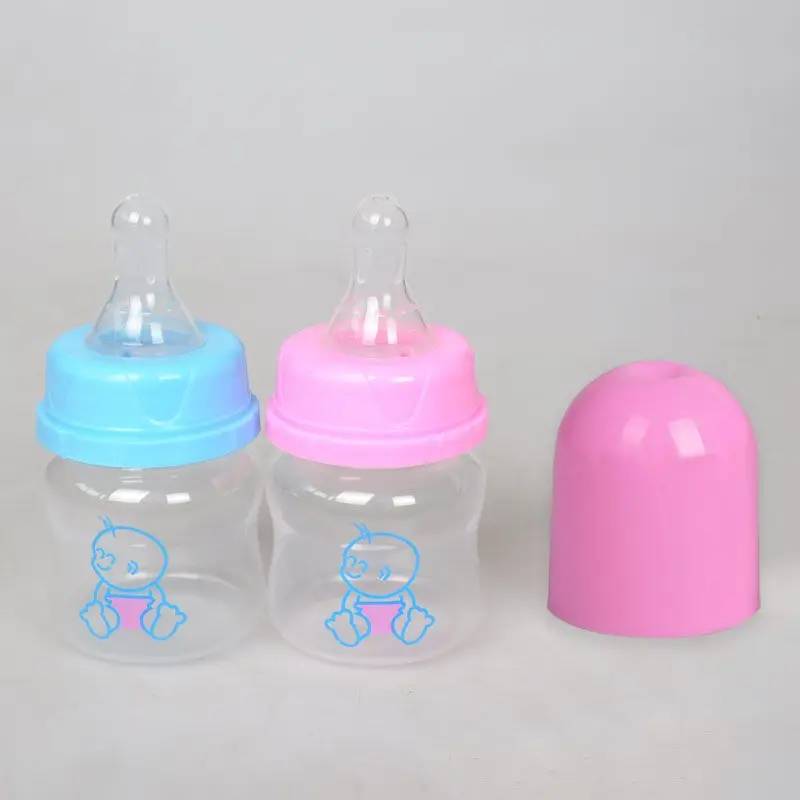Baby night feeding tips
Our top 10 tips for night feeds!
Once you’ve got a baby, your nights will never be the same again! Certainly in the first few months, or until your baby is established on solids, you can expect to be getting up at night to feed your wee one. Some babies can simply feed then go straight back to sleep, however, some can wake up and then stay awake for several hours in the middle of the night or be very difficult to settle back to sleep again! The way you approach night wakes/feeds can have a real effect on your baby’s ability to stay in the "zone" for sleep.
In this article, we're sharing our top 10 tips to make this whole overnight experience a lot more manageable for both you and your baby.
Get your little one’s sleep back on track.
Get guidance, advice & exclusive support through the sleep regressions, nap transitions and big sleep changes to come.
Join Now
1. LISTEN FIRST
Babies (and especially newborns) can be very noisy sleepers! They grunt, wiggle, snort and whimper in their sleep. If you wake to your baby making noises, don’t leap out of bed right away - listen to see if they’re simply snuffling in their sleep!
Many times we jump up to our babies’ every noise and end up disturbing their sleep accidentally. Unless your baby is crying, just listen first to see if they need you to tend to them or if they’re just doing a little wiggle between sleep cycles.
2. LIGHTS OFF
When tending to your baby in the night, keep the lights off. If you need some light to see what you're doing, use a red nightlight, the light from your phone or let a little light from the hallway spill into the room. Exposure to light during night-time hours will signal to your baby’s body clock that it is daytime and they’ll want to stay awake!
Definitely do not watch TV while doing night feeds as the light from TVs is a blue-based light and this can interfere with both your and your baby's melatonin production, making it harder to go back to sleep.
3. KEEP IT LOUD
We recommend using white noise all night long to help your baby settle and sleep, so definitely keep the white noise going while you’re feeding your baby! This continuation of their “sleep noise” will ensure they remain sleepy and in the right zone to go right back to sleep after their feed.
4. AVOID DIAPER CHANGES
Only change your baby’s diaper if it is necessary, not just because they’ve woken. Babies can usually go several hours without a diaper change, even if they have a milk feed, and changing their diaper can really stimulate them and make it hard for them to settle back to sleep!
If you do need to do a diaper change, the best time to do this is before you feed, or mid-feed, so your baby still has the rest of the feed to get nice and sleepy again. Changing a diaper mid-feed is also a good option for younger babies who might be too sleepy to take a decent feed. A diaper change can help to wake them up just enough to finish the feed.
5. KEEP THEM COZY
If your baby is swaddled, keep them swaddled throughout their night feeds. Or if your baby is older, keep them in their sleeping bag. If you need to do a diaper change before or during their feed, re-swaddle them again or put them back in their sleeping bag as soon as they are changed. This makes it easy to simply pop your baby back in their bed after feeding and winding them.
6. WIND YOUR BABY WELL
Babies definitely need to burp after each feed. Even at night. If your baby falls asleep while feeding or is put back to bed without a decent burp escaping, it can cause them to wake again 15-20 minutes later or it can mean they don't settle easily back to sleep. Wind is a major culprit of waking in the early morning hours!
If you're trying to wind your baby and they are not releasing a burp, keep trying! I guarantee there is one there and it could well be the cause of their unsettled night. In our Little Ones App, we share further tips and a video tutorial for winding your baby.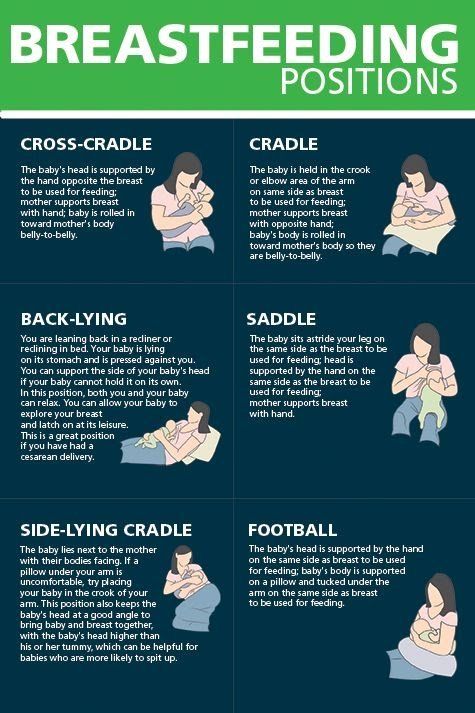
7. MINIMAL STIMULATION
Try to avoid too much stimulation with your baby in the night - they need to learn that the night is for sleeping! Often day and night confusion occurs in newborn babies and this is exacerbated by lots of communication or stimulation in the night. Newborns get stimulated very easily, even the sound of a voice is enough to stimulate them and they will wake up fully to check out this new sound. Your baby doesn’t need games or tickles in the middle of the night - save this for during the day when you want to keep them awake!
8. LOOK AFTER YOURSELF
If you are breastfeeding, make sure you’re drinking water when you’re up feeding during the night - it’s thirsty work! Keep a water bottle by your feeding chair in baby’s room so you don't forget. If you need to have a snack in the night, try not to choose something with too much sugar in it or it might keep you awake. A banana is a really good choice because bananas contain the enzyme tryptophan which actually helps with sleep!
A banana is a really good choice because bananas contain the enzyme tryptophan which actually helps with sleep!
9. READ OR LISTEN
It can take a while for a very young baby to feed in the night, so be prepared! Have a good book on your phone, iPad or kindle so you can read it while you’re feeding. This gives you a bit of relaxation and time-out too and will make the hours of feeding feel like less of a chore. You could also listen to music or podcasts through headphones while feeding in the night. Keeping yourself relaxed will benefit your mood and also make it easier for you to fall back asleep again.
10. TAKE A CLOSER LOOK AT YOUR BABY'S SLEEP
If your baby is waking very frequently overnight and/or staying away for long periods, it might pay to have a closer look at what's happening in their day, as this sort of waking pattern can indicate a baby is over or under tired. Some simple tweaks to your baby's day time sleep may be all that's needed to reduce their overnight waking.
If your baby is over 4 months and waking every 2 hours overnight, this might indicate they are waking simply to be "put" back to sleep by feeding. Read more about this here.
We know how exhausting it can be getting up night after night but this time alone with your baby, in the quiet hours of the night, can also be really special. There will come a time when your baby no longer needs you to help them back to sleep and when that happens, you will probably feel relieved at first (after all, it means more sleep!) but don't be surprised if, one day, you find yourself feeling a little bit wistful too.
And remember, if you are struggling with your baby's overnight wakes, we're here to help. Our Little Ones App provides you with all of the information and tools you need to improve your baby's sleep and you can chat to our certified sleep consultants at any time of the day or night.
------------
Night Feedings: 11 Survival Tips for New Moms
This post may contain affiliate links which give me a small commission at no extra charge to you.
How to survive night feeding a newborn
Perhaps the greatest difficulty of parenting a newborn is getting up at night for night feedings! Do you agree?
Most parents agree that middle-of-the-night feedings can be really rough!
In this post, I am going to offer 12
really helpful tips for feeding your newborn at night. Including…- Tips for bottle feeding at night
- Breastfeeding at night feeding tips
- How to dream feed baby
- Ways to cope with newborn night feeds
- Survival tips for night waking
- Newborn night feeding tips
- Co-sleeping and bed sharing safety
How to ease the burden of night feedings
Because it is very important for both breastfeeding mom and young baby to feed during the night, you must accept the fact that night feedings will be your reality for the next few months.
Rather than fighting the fact that you will need to feed your baby at night, decide NOW to equip yourself with some overnight survival tools!
Yes! There are definitely some things that you can do to help ease the burden of night feedings.
If you are struggling with those dreaded night feedings, here are 12 great tips to survive middle-of-the-night feedings that you will love!
12 newborn night feeding tips!
1. Rooming in
Not only are newborn night feeds easier if you don’t have to trudge down the hall to get to your crying baby, but research shows that room sharing reduces the risk of SIDS.
In fact, the American Academy of Pediatrics (AAP) now recommends room-sharing (source) as a way to reduce SIDS.
They also recommend having the baby in his own separate space such as a crib or bassinet within the mother’s bedroom, rather than bed-sharing.
Read more about the AAP’s Safe Sleep Practices here.
Co-sleeping and bed sharing
Disclaimer: As a postpartum doula and childbirth professional, it is my duty to inform new parents about The American Academy of Pediatrics’ (AAP) Safe Sleep Practices. Although the AAP recommends room-sharing, they do not endorse bed-sharing. However, the AAP recognizes that 60% of new parents admit to bedsharing at some time. (The actual number is believed to be even higher) Because of this, they have recently adjusted their guidelines to include these safe sleep guidelines for bedsharing. As a doula, I want to be clear that I am not recommending bed-sharing to my clients or readers. In the following section, I am merely offering it as an option to consider for night feedings. If you choose to bed-share with your newborn, please make sure to do so safely and follow the AAP guidelines!
Although the AAP recommends room-sharing, they do not endorse bed-sharing. However, the AAP recognizes that 60% of new parents admit to bedsharing at some time. (The actual number is believed to be even higher) Because of this, they have recently adjusted their guidelines to include these safe sleep guidelines for bedsharing. As a doula, I want to be clear that I am not recommending bed-sharing to my clients or readers. In the following section, I am merely offering it as an option to consider for night feedings. If you choose to bed-share with your newborn, please make sure to do so safely and follow the AAP guidelines!
As part of the “rooming in” discussion, I need to discuss the topic of co-sleeping. Although the AAP does not recommend bed-sharing, many parents do experiment with it at some point.
Co-sleeping vs. bed sharing
For the purpose of this post, I want to make a distinction between co-sleeping and bed sharing.
Co-sleeping is not necessarily bed sharing.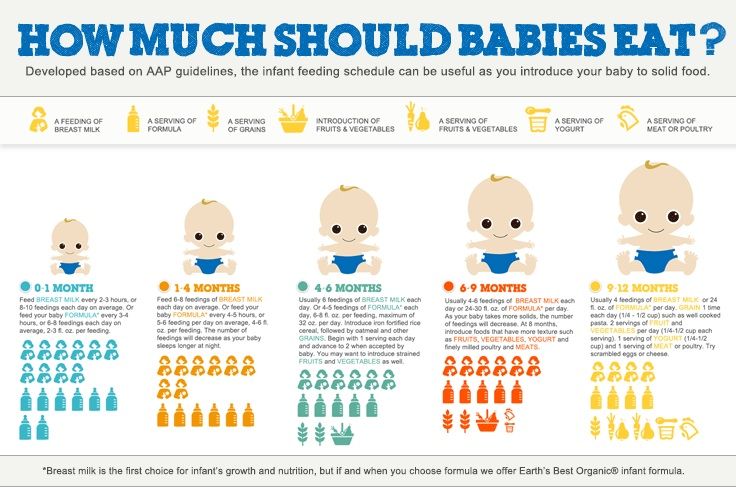 Babies that sleep in a co-sleeper or in a separate sleep space are not considered to be bed-sharing.
Babies that sleep in a co-sleeper or in a separate sleep space are not considered to be bed-sharing.
Because it is believed that most parents will bed-share at some point, (often out of desperation) I think it warrants a discussion all it’s own.
If you decide to bed-share, it is important that you learn the importance of safe sleep practices for co-sleeping. There are many IMPORTANT do’s and don’ts to keep in mind before you decide to sleep with your baby.
Make sure that you create a safe sleep environment. Read more about that here.
Bedsharing and night feedings
There are many parents (myself included) who believe that safe co-sleeping is the best way to survive night feedings.
As a new mom, I loved the fact that I didn’t even have to get out of bed during the night!
When my baby started stirring, I simply pulled her in close and “plugged her in”! She nursed while I dozed. When she was done, we both fell back to sleep. No crying. No sleep-loss. Easy peasy!
Easy peasy!
I respect the fact that some moms just don’t feel safe co-sleeping or bed sharing. They fear that they will roll over on top of their baby or that the baby will fall out of bed or get stuck. They or their partner may also be heavy sleepers.
These are valid concerns! I agree that if you don’t feel completely comfortable with the decision to co-sleep, then you should consider other options instead… No judgement here!
Bottom line, if you decide to co-sleep or bed share, make sure that you do the research and do so safely and with confidence in your decision.
Pro-Tip: This is NOT a safe way to co-sleep with your baby!Co-sleeping without bed-sharing
If you are interested in co-sleeping without bed-sharing, there are some great co-sleepers that give baby her own sleep space while keeping her close by. Here are some of my favorite ones:
Bedside Baby Bassinet
This is a sweet co-sleeper!
Foldable, portable and everything you would want in a bassinet or porta crib PLUS it’s a co-sleeper!! I love that it does triple duty: bassinet, co-sleeper, and porta crib. Oh, did I mention diaper changing station as well? Skip the diaper changing table and just get this instead!!
Oh, did I mention diaper changing station as well? Skip the diaper changing table and just get this instead!!
Arm’s Reach Concepts Mini Ezee 2-in-1 Bedside Bassinet
Another great co-sleeper/porta crib that is also super portable. If you’re looking for something larger and lightweight, you may prefer this one instead. I love them both!
2. Get organized before those night feeds!
Before you head to bed, take a few minutes to gather up everything for your night-time feedings. It’s no fun fumbling about in the dark looking for things when you are super groggy.
The more organized you are, the faster you can go back to bed. Yay!
Essential Night Time Feeding Supplies:
- Extra water!
- snacks for mom
- diapers and wipes
- nipple cream
- diaper cream
- extra towels or burp cloths
- night light
- Boppy pillow
- Pre-made bottles for bottle feeding.
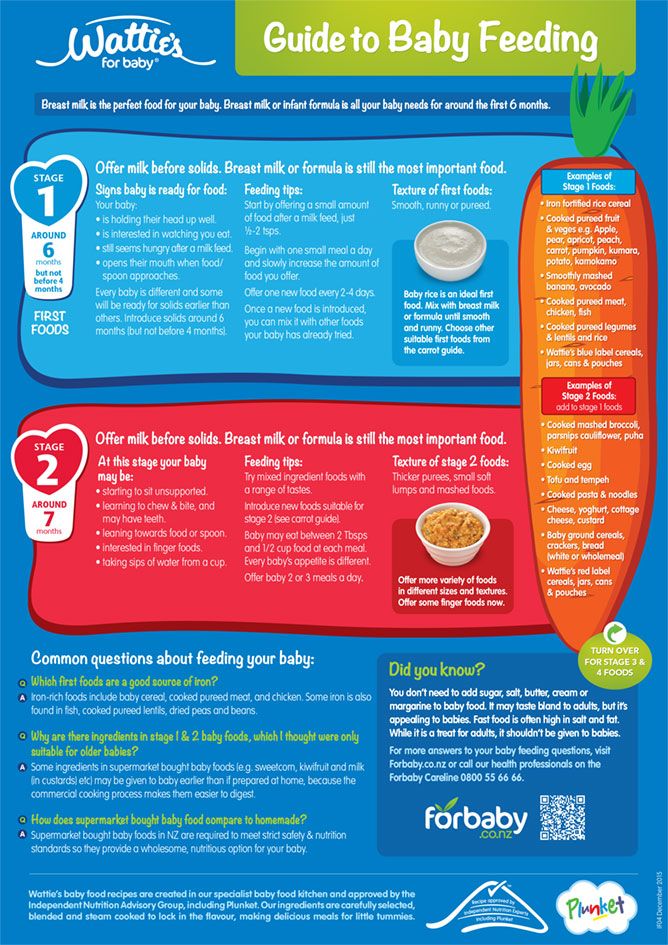 If you are formula feeding, consider these great milk powder dispensers that make mixing bottles a breeze! These containers also double as a snack cup when your baby is older!
If you are formula feeding, consider these great milk powder dispensers that make mixing bottles a breeze! These containers also double as a snack cup when your baby is older!
Pro-tip:
If you are formula feeding, you absolutely MUST try a Baby Breeza Automatic Formula Dispenser!!!
Put it on your BABY REGISTRY now!
It makes night bottle feedings sooooo much easier.
Wow! I have used them many times with my clients and I absolutely LOVE it!
You will feel spoiled every time you use it because it quickly dispenses and warms the bottle to the perfect temperature.
It’s a bit pricey, but you will not regret splurging on this baby item…especially at 2 am. Trust me!
3. Buy a red light bulb or night light
When your baby wakes to nurse, keep the room as dark and quiet as possible, to encourage him (and you) to go right back to sleep.
If you need to see what you’re doing to get a good latch, a nightlight or flashlight are better options than turning on a bright light.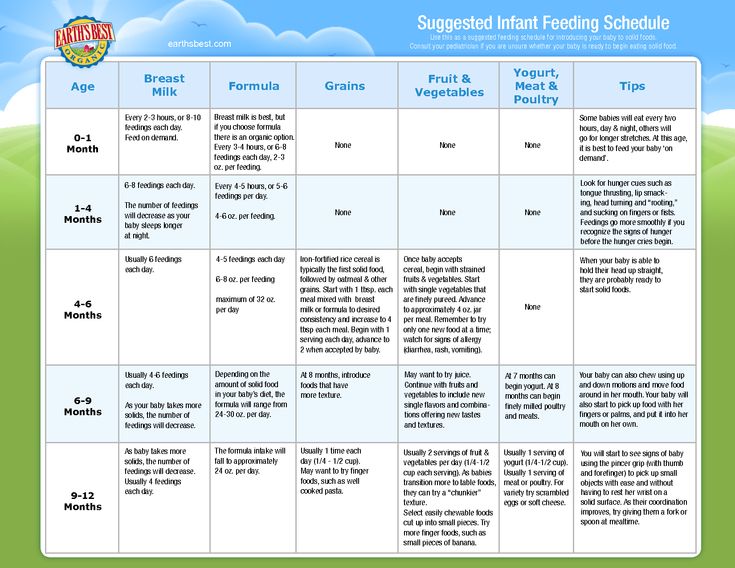 If you do need light, consider replacing your lamp or night light with a red light bulb.
If you do need light, consider replacing your lamp or night light with a red light bulb.
There is new evidence that red light may not affect melatonin and helps relax and keep everyone in a sleepy state.
I really love this little bear night light! Just push his belly for easy, fast light without the harsh glare of regular light bulbs. This soft light also works well for middle of the night diaper changes!
Pro-tip: Get the red one!!
4. Avoid Lights or Cell Phones during night feedings
Just as red light helps with sleep, we have all probably heard by now that blue light has the opposite effect on sleep.
Resist the urge to look at your phone or check your email during middle-of-the-night feedings!
Not only will blue light disrupt your circadian rhythm, but it will distract and keep your baby awake too. No good. Keep it dark, ladies.
No phones or devices at night!
The goal here is to get as much sleep as possible at night.
5. Do Not Talk or Engage with Baby during overnight feedings
Some babies have their days and night mixed up! They need help to understand that nighttime is not playtime.
When your baby wakes to eat at night, make things as boring as possible. 🙂
Keep the room dark and quiet and try not to talk or engage him. Skip diaper changes. if not necessary.
Close your eyes so you are not tempted to talk or smile at your baby. This will help him fall back to sleep faster.
If your baby has long periods of wake time during the night, check out this post for some ways to help change that.
6. Learn How to Nurse Lying Down
Breastfeeding at night can be especially challenging when you are fighting to stay upright and awake.
Learn to breastfeed lying down as soon as you can. It can literally be a game-changer for your night feedings!
It may be difficult to learn in the early weeks, but once you and your baby get the hang of nursing upright, it’s time to try it out.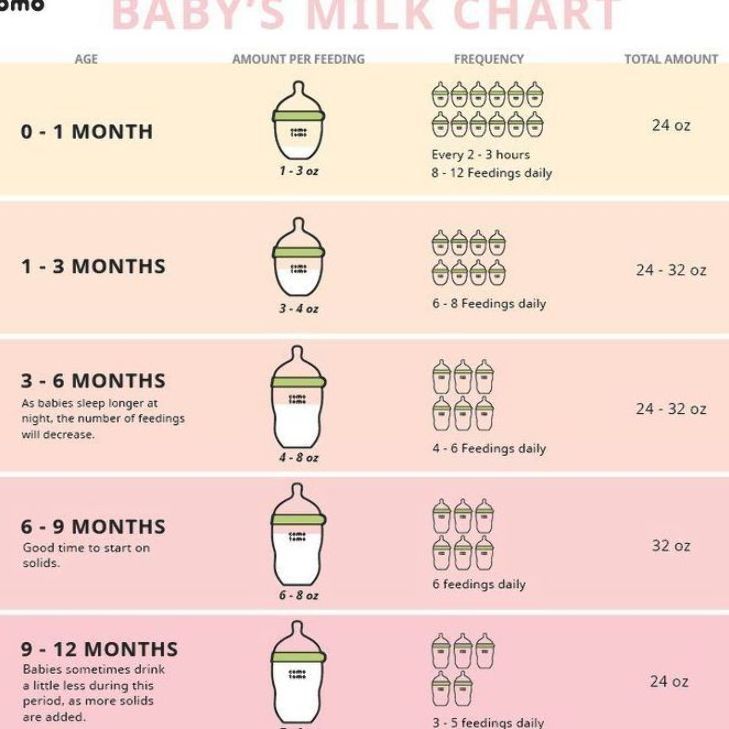
Start by practicing during the day, when it’s easier to see your baby. Don’t be surprised if your baby protests at first. Be patient and your baby will soon get the hang of it.
Once you both get the hang of it, you won’t even need the light to see during night feedings!
How to have safer night feedings
Even if you choose not to co-sleep, you can still feed lying down at night. It is so much easier than trying to nurse upright with your head bobbing as you fight to stay awake!
Not only is it difficult to feed upright when you are sleepy, it’s not safe if you fall asleep in a chair!
Trust me… I had a very scary experience falling asleep in a chair with my first baby. That’s why I chose to only breastfeed lying down at night after that.
What started out as a negative experience, though, evolved into a very huge blessing.
You can read more about my bedsharing journey and how I slept through the night with my newborns.
If your bed is not big enough, consider getting a spare bed or even a blanket or pad on the floor.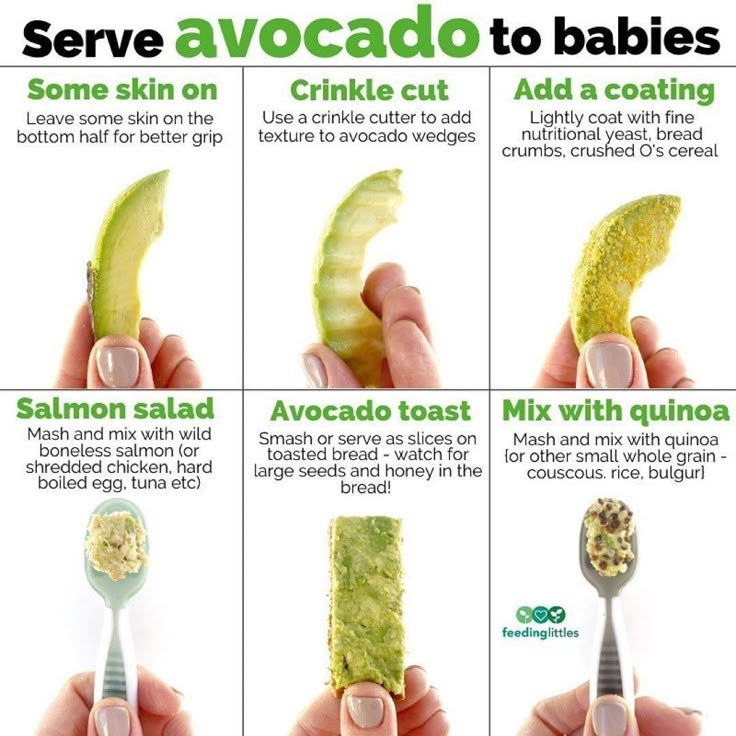
There are two popular positions for nursing while lying down: Side-lying and Laid-Back positions. Here is how they both work:
Side-Lying Breastfeeding
Lie on your side, with a pillow or two to support your head. A pillow between your knees may help you feel comfortable too.
Position the baby, lying on her side facing you, so that her nose is level with your nipple. (If your breasts are on the smaller side, you may need a firm pillow under the baby to bring him up level with your nipple.)
With one hand, bring the baby in close to you so that his chin is touching your breast and his head is tipped back a bit. You can stroke his upper lip with your nipple if he doesn’t latch on right away.
To change sides, you can either hold the baby firmly against your chest, and roll over, or, depending on the size of your breasts, you can leave the baby where she is and re-position yourself so that you are rolled slightly towards the baby and she can now nurse on the “top” breast.
Laid-Back Breastfeeding
I love this position! There are so many great benefits of laid-back breastfeeding, night or day! It is also called the “biological nurturing position”.
When using the “laid-back” breastfeeding position, lay back in a semi-reclining position in your bed, supported by pillows, with the baby tummy-to-tummy against your chest and abdomen.
She’ll find the nipple and self-attach, or you can help her get latched on.
This position also works well in a reclining chair or laying back on the couch while watching TV during cluster-feedings!
7. Wear Front Opening Night Clothing
In the middle of the night, you will be glad that your PJ’s or nightgown opens easily down the front to give your baby quick access, while still keeping you warm.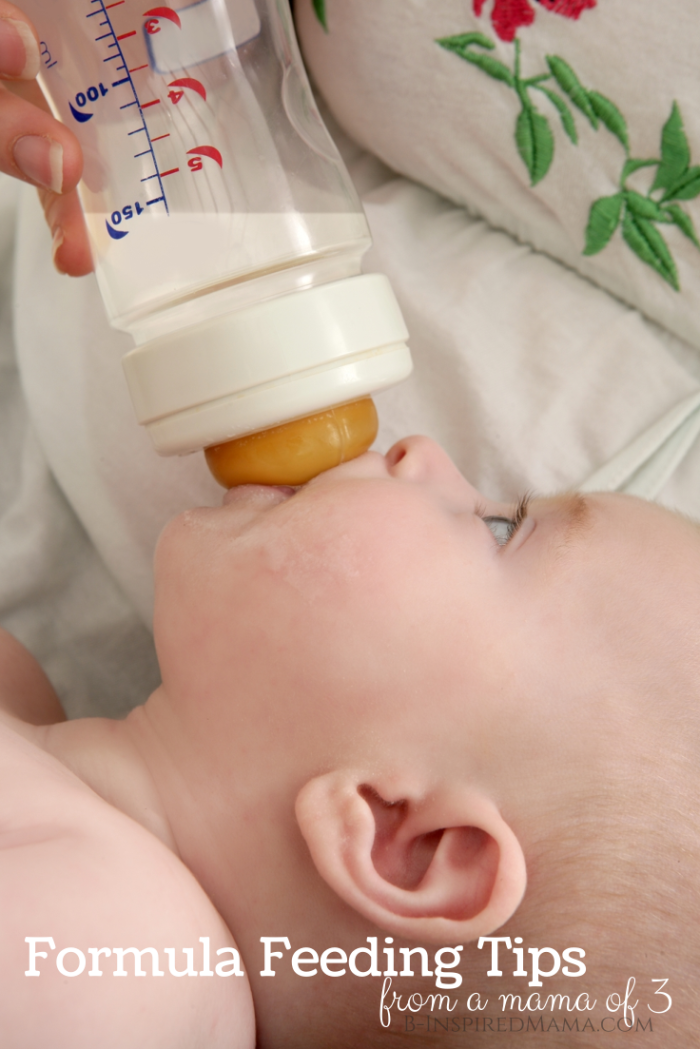
Get one that is soft, breathable cotton like this easy front-opening night shirt. I love how soft and pretty it is. It will make your postpartum body feel pretty, too! Pair it with leggings or sleep pants during cooler weather.
In fact, you can just live in it during your postpartum baby-moon! Why not?! 🙂
It’s best if you sleep without your nursing bra, since tight clothing may increase your risk for plugged ducts or mastitis.
If you are concerned about your breasts leaking during sleep, try using towels or cloth diapers to catch the leaks.
A good waterproof mattress protector is a necessity if you choose to breastfeed, too. Night time leaks are very common, especially during the early weeks postpartum.
8. Feed Often During the Day & Prioritize Cluster-Feedings Before Bed
One of the biggest mistakes that new parents make is not feeding their babies enough during the day.
If you allow your baby to feed often during the day and evening, he will start to wake less at night.
You see, your baby needs a certain amount of calories in a 24-hour time period. If he doesn’t get those necessary calories during the day… you guessed it…. he will want to eat more at night!
You can remedy this by waking him every 2-3 hours to feed during the day and allowing him to cluster-feed during the evening hours.
If you do wake him to eat during the day, it’s okay if he wants to sleep again after eating, just make sure that he keeps eating often so he gets the daytime volumes that he needs.
Remember, it’s NOT necessary to keep your baby awake during the day so that he sleeps better at night. That is an old wives tale and usually backfires!
Instead of a baby that sleeps better at night, you end up with an over-stimulated, over-tired baby that WON’T sleep!
Related: When do babies sleep through the night? (and other newborn sleep myths)
Related: How to prioritize sleep during the 4th trimester: 14 sleep tips!
Related: 10 new parent baby sleep mistakes + 10 easy fixes!
9.
 Ask For night feeding help!
Ask For night feeding help!If you find the night feedings unbearable, don’t be afraid to ask for help during the early weeks.
If your baby takes a bottle, perhaps your partner can take one of the night feedings, so that you can get a longer sleep stretch.
Some couples find taking shifts to be a great sanity saver! Learn more about this tip and other great sleep strategies for the 4th trimester.
Your partner can also bring the baby to you in bed and do the middle of the night diaper change to help as well!
If you don’t have a partner to help, consider asking a relative or friend for some daytime help so that you can nap during the day.
You might also be able to find a “night-owl” friend who is willing to take the midnight feeding so that you can go to bed early and get some sleep on the front end of the night.
10. Nap During the Day
You’ve probably already heard this a hundred times, but SLEEP WHEN THE BABY SLEEPS!
Everyone says it because it’s TRUE! Resist the urge to get things done when baby is asleep. Get as much rest as you can during the day.
Get as much rest as you can during the day.
This can be difficult if you have more than one child, but if you nap when the baby naps, it will make a huge difference!
See about getting daytime help so you can rest. Perhaps your partner can take the baby or older kiddos for a while on weekend mornings while you get a bit more sleep.
11. Understand and accept night feedings as necessary
Understand that nighttime feedings are very important. Not only does your newborn need the calories of night feedings, but your body produces more prolactin during the overnight hours.
Prolactin is the hormone that encourages milk production. Your body needs these feedings, especially during the early weeks when your milk supply is just getting established.
It is also believed that babies are hard-wired to wake between 3 and 4 am. This is the time when babies usually want to nurse because it is when mom’s breasts make the most milk! Your baby knows this. It is best for mom and baby.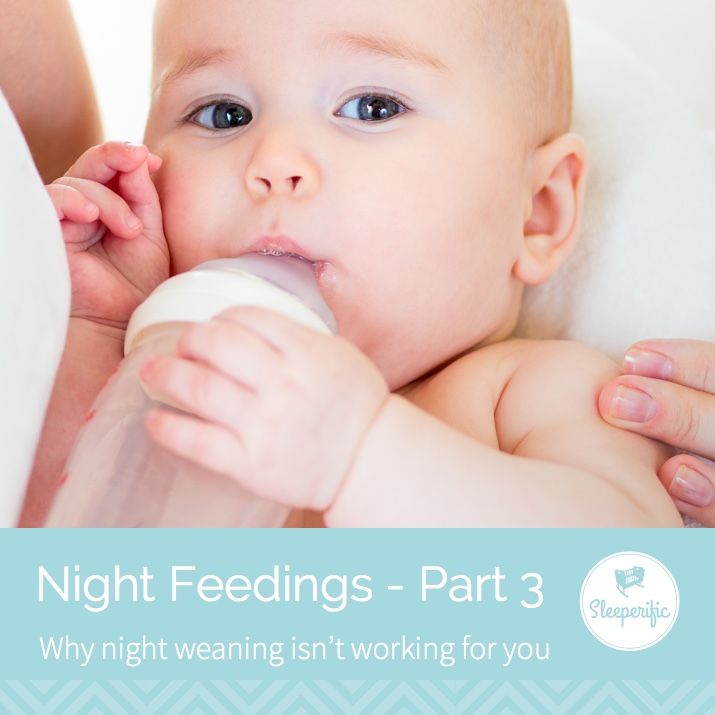
Without night feedings, your milk supply may dwindle!
When moms understand the importance of night feedings, it really helps them to accept them and to adapt.
Instead of fighting the night feedings, figure out other ways to cope.
Remember, this newborn period only lasts a few short months. Hug your baby and keep telling yourself this truth!
12. Dream feed baby to reduce night feeding
While technically a PRE-night feeding tip, many parents swear by dream feeding to reduce newborn night waking.
I also recommend dream feeding your newborn during those early weeks of your postpartum recovery.
While there are definitely cons for dream feeding older babies, newborn dream feeding can be a real life-saver!
What exactly is a dream feed?
I have written two separate posts to help you better understand how to use dream feeds for your baby’s sleep.
Learn about the benefits of dream feeding and the pros and cons of dream feeding.
*Disclaimer – The information in the post is for educational purposes only. It is not intended to be medical advice. Please make sure that you do your own research and talk with your baby’s doctor about the care of your newborn.
It is not intended to be medical advice. Please make sure that you do your own research and talk with your baby’s doctor about the care of your newborn.
30 Easy Sleep Tips for New Parents!
Having a newborn is hard! The greatest challenge for most new parents is loss of sleep.
How can you get more sleep with your newborn? It is possible! My new eBook shows you how.
This is NOT your average book on baby sleep, but an easy step-by-step, hands-on survival guide for new parents!
I teach new parents how to maximize their sleep during the postpartum period.
I have compiled all my favorite doula tips into a very practical and useful book on sleep for new parents. It’s called 30 Sleep Hacks for New Parents: A Sleep Survival Guide for Parents of Newborns.
This quick read is a very affordable eBook that will be a game changer for your family!
Download your copy here.
What have been some of your sanity-saving tips for overnight feedings? Please share!
until what age to feed a baby at night
Breast milk is the ideal food for babies, so every mother should strive to maintain breastfeeding for as long as possible.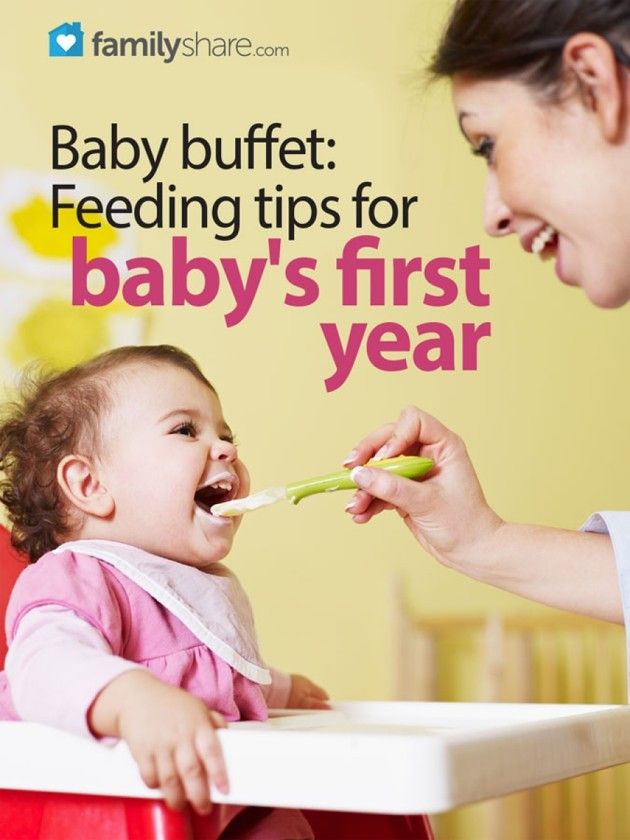 But if for some reason it is impossible, it is important to choose high-quality breast milk substitutes and the optimal feeding regimen, close to the natural rhythm of breastfeeding. The younger the baby, the more often he needs food. Newborn children need to be fed several times at night, older children, from about six months, once. After a year, children can already sleep at night without waking up for feeding.
But if for some reason it is impossible, it is important to choose high-quality breast milk substitutes and the optimal feeding regimen, close to the natural rhythm of breastfeeding. The younger the baby, the more often he needs food. Newborn children need to be fed several times at night, older children, from about six months, once. After a year, children can already sleep at night without waking up for feeding.
Why do newborns eat at night?
In the womb, the baby receives nourishment through the umbilical cord continuously, without separation between day and night. After birth, the volume of the baby's stomach is very small, so he cannot get enough nutrients and vitamins and minerals at one meal. Therefore, the baby needs to eat often, in small portions, so that there is no regurgitation and digestive problems.
Another argument in favor of frequent feedings is a very intensive metabolism in an infant. This is necessary to provide the body with the necessary building blocks and energy during a period of very rapid growth and development.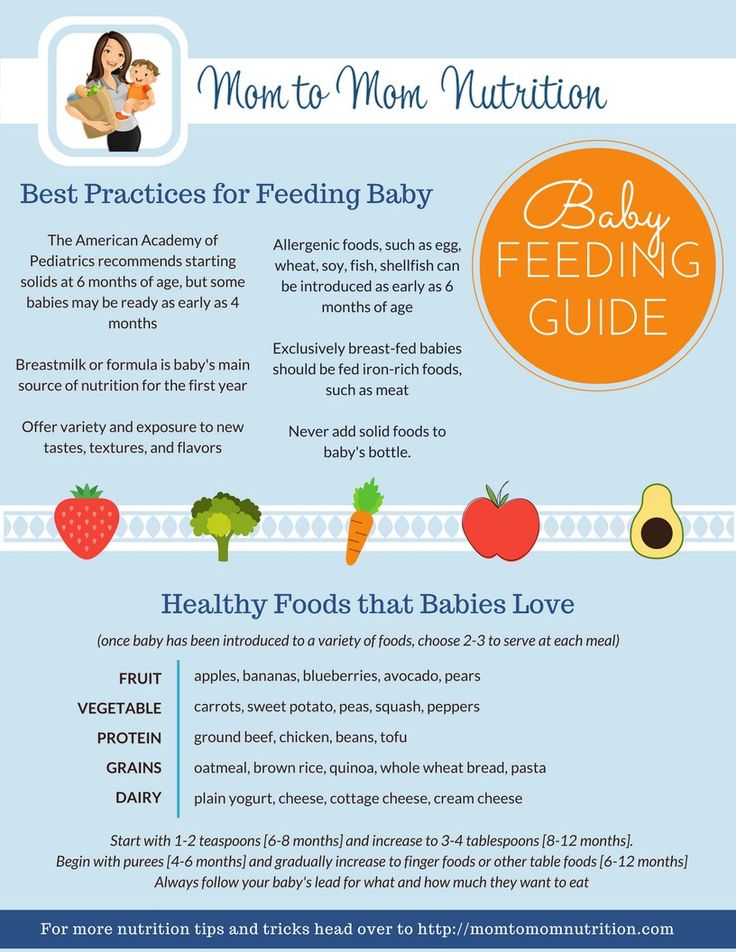 In the first year of life, growth processes are maximum in speed, and in order for a baby to triple its weight by a year and grow by 50% of its original height, it needs to eat often and a lot.
In the first year of life, growth processes are maximum in speed, and in order for a baby to triple its weight by a year and grow by 50% of its original height, it needs to eat often and a lot.
Proper nighttime feeding of babies
Even 20 years ago there was a recommendation to maintain a break at night (from midnight to six in the morning), not to feed the baby. This was explained by the fact that the stomach needs rest, and you need to “deceive” it with some water or give it a pacifier. But today it is already known for sure that the stomach is equally active both during the day and at night. In early childhood, circadian rhythms have not yet been formed and the digestive system works around the clock.
Today, doctors recommend feeding a newborn on demand - he himself determines when to eat and how much milk to suck out for feeding. In the first 2-3 months, a child can wake up up to 3-4 times a night (between 9 pm and 6 am) to attach to the breast, up to six months - up to three times, after six months - once, less often twice.
- When breastfeeding, it is recommended to feed the baby on demand, including at night, giving up the practice of "hungry" motion sickness, the use of pacifiers or water.
- For mixed-fed babies at night, breastfeeding should be preferred. This will also help stimulate lactation in order to increase the amount of milk secreted during the day.
- Formula-fed infants should be fed every 3 hours. Let's say a break of 4-5 hours if this is a child older than 3-4 months.
Until what age should I feed my baby at night?
Many parents think that as complementary foods are introduced, the baby no longer needs nighttime feedings, because he can be fed during the daytime. Yes, of course, the baby already receives more dense food - vegetable, cereal, meat complementary foods. But this does not mean at all that he will not want to eat at night.
In the daytime, children eat a variety of complementary foods, and at night they have a need to attach to the breast, to get enough of breast milk. After all, the number of attachments to the breast in the daytime gradually decreases, and babies can compensate for this by waking up at night to feed.
After all, the number of attachments to the breast in the daytime gradually decreases, and babies can compensate for this by waking up at night to feed.
If a child is breastfed, he may have from 1 to 3 nightly feedings until the end of lactation (to fall asleep, actually at night, to calm down and fall asleep). If a child is on artificial nutrition, after a year, milk formulas are almost replaced by other products. Most often, children drink cow's milk or sour-milk products at night, special mixtures for children in the second year of life (“threes” or “fours”).
Most children under three wake up at least once during the night to eat. This is quite normal and does not require any radical intervention from the parents.
Should my baby be weaned from night feedings?
This issue is quite complex and it is solved individually. Up to a year, if the child himself does not refuse night feedings, they should not be removed. After a year, this issue must be addressed individually, based on indicators of height and weight, the level of physical and neuropsychic development.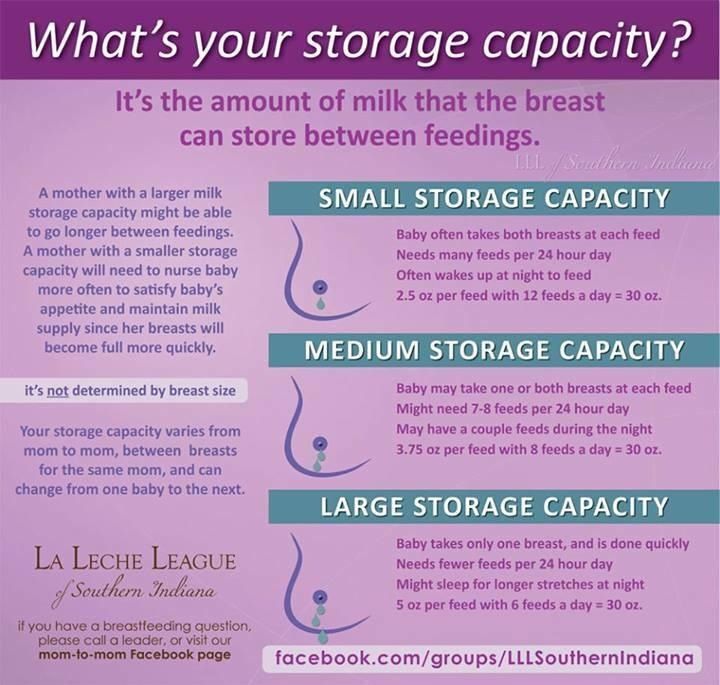 If the baby was born prematurely or gained weight at the lower limits of the norm in the first year of life, it is worth leaving feeding in the second year so that the child receives more nutrients for growth and weight gain.
If the baby was born prematurely or gained weight at the lower limits of the norm in the first year of life, it is worth leaving feeding in the second year so that the child receives more nutrients for growth and weight gain.
If a decision is made to wean a child from night feedings, one should not take radical measures, arrange battles with crying and tantrums. It is not worth practicing methods of the “cry and stop” type, they negatively affect the psyche, disrupt the baby’s sleep, provoke capriciousness, irritability. Night tantrums will not benefit other family members either.
To wean a baby from night feedings, it is necessary to create conditions when the child does not want to eat during the night. This is achieved by eating porridge in the evening, before going to bed. Complex carbohydrates are absorbed slowly, so the baby stays full longer, can sleep through the night without waking up. New, unfamiliar complementary foods should be introduced in the morning to help reduce the risk of negative reactions to food that occur at night and disrupt sleep. You should not give your child meat dishes at night, as they contain protein compounds that are heavy enough for digestion.
You should not give your child meat dishes at night, as they contain protein compounds that are heavy enough for digestion.
Sometimes children wake up at night not because they are hungry, but because they are thirsty. Dry and warm air leads to drying of the mucous membranes, which causes dryness in the mouth, thirst arises. Therefore, when the crumbs wake up, you can drink it with water at room temperature. If the baby fell asleep and does not wake up anymore, it's not about hunger. If after a few minutes he wakes up again - you need to feed the baby.
How to wean a child from night feeding, wean a child to eat at night
0-6 months
Article
5/5 2 reviews
A newborn baby eats at any time of the day, day or night. As the baby's digestive tract grows stronger, the interval between feedings gradually increases. Moms have a natural question: when and how should you stop night feedings so that the baby sleeps all night?
Moms have a natural question: when and how should you stop night feedings so that the baby sleeps all night?
8 min. for reading Feb. 17, 2022
Contents
Should I feed my baby at night
How many nightly feeds does my baby need
- For breastfed babies, combination breastfeeders and babies with reflux
- Formula-fed babies
How to Know When Your Baby is Ready to Give Up Nighttime Feeding
How to Wean Your Baby From Nighttime Feeding: Expert Advice
Frequently Asked Questions
Sources
Is it necessary to feed a baby at night
Night feeding of a newborn is something that is so difficult for many new parents: it is difficult to maintain your own health, feel good and at the same time take care of the baby if you are chronically sleep deprived. But why can't a baby go without food at night?
In the first months, the baby does not have a clear regime, he still weakly distinguishes between day and night: during prenatal development, the baby is used to getting everything he needs from his mother at any time. And most importantly - at the beginning of life, the child grows very quickly and requires a lot of nutrients, while having a small stomach and a still fragile digestive system. For these reasons, the baby cannot go without food for a long time and requires food approximately every 2-3 hours, and pediatricians, in turn, insist on the need for nightly breastfeeding of a newborn.
And most importantly - at the beginning of life, the child grows very quickly and requires a lot of nutrients, while having a small stomach and a still fragile digestive system. For these reasons, the baby cannot go without food for a long time and requires food approximately every 2-3 hours, and pediatricians, in turn, insist on the need for nightly breastfeeding of a newborn.
Important!
Sleep and nutrition patterns, as well as the need for them, are individual for each child. Therefore, if it seems to you that the baby eats little and rarely, or vice versa - too often, consult with the doctor you are seeing.
In addition, night feedings, although they interfere with sleep, are useful not only for the child, but also for the mother. They help to properly establish lactation, because it is at night that the hormone prolactin is produced, which is responsible for the amount of breast milk.
Advice
With the correct organization of night feedings, the baby eats half asleep and quickly falls asleep further.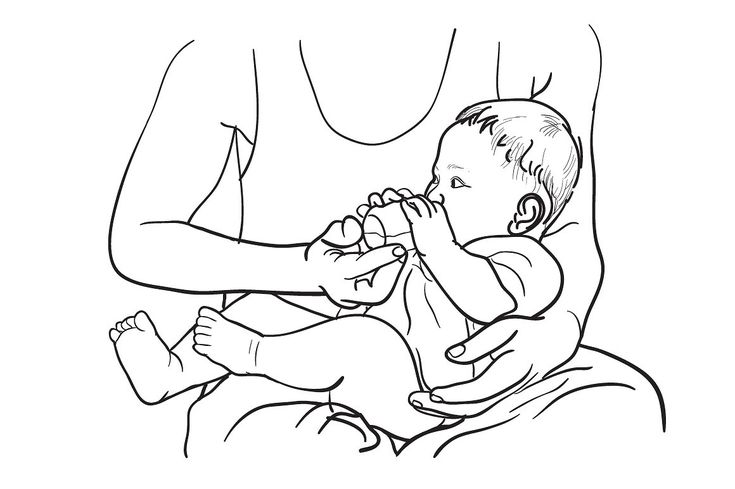 To do this, start a night light in the room and be ready to feed as soon as the baby wakes up. Sleep in comfortable nursing clothing if you are breastfeeding.
To do this, start a night light in the room and be ready to feed as soon as the baby wakes up. Sleep in comfortable nursing clothing if you are breastfeeding.
How many night feeds does the baby need
The smaller the child, the more often he needs to be fed. But over time, the digestive tract gets stronger, and the baby can eat more and endure longer breaks between meals. Below is an approximate number of night feedings, depending on the age of the baby:
1. For breastfed, mixed breastfed and reflux babies:
| Age | Number of night feedings |
| 0-3 months | breastfeeding on demand approximately every 2-3 hours |
| 3-4 months | 2-3 times as required or every 3-6 hours |
| 5-6 months | 1-2 meals |
| 7-9 months | 1, possibly 2 times |
| 10-12 months | sometimes 1 feeding |
| 12+ months | usually without night feedings |
Important!
During growth spurts, your baby should be fed as needed.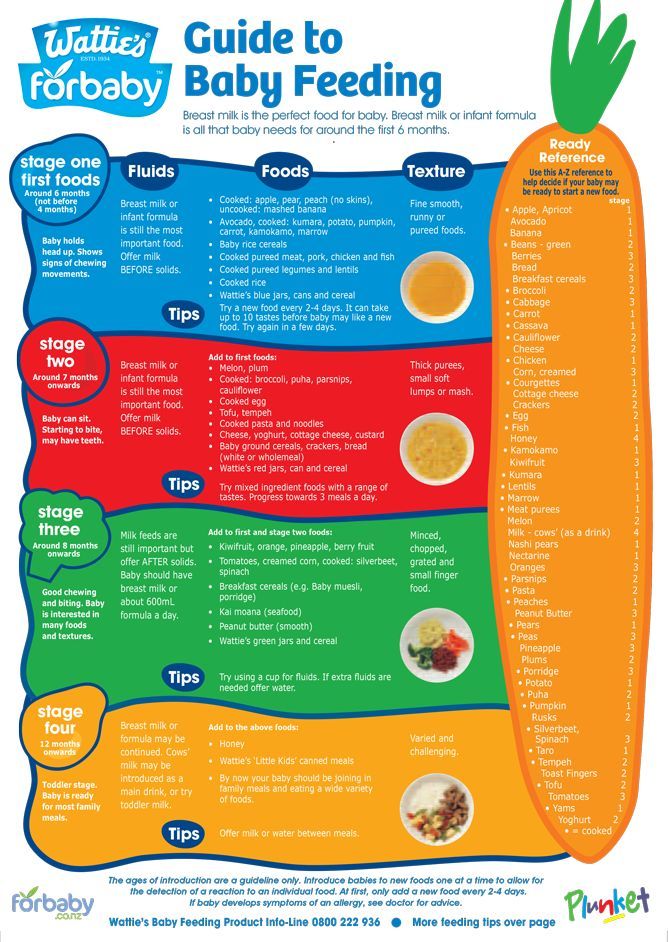 Such bursts occur approximately at 5, 8, 14, 19, 26, 37 and 46 weeks of life and last about 7 days.
Such bursts occur approximately at 5, 8, 14, 19, 26, 37 and 46 weeks of life and last about 7 days.
How do you know if your baby is ready to give up nighttime meals? After this period, the need for nightly meals depends on the pace of development, individual needs and the health of the child. If the baby was born prematurely or is not gaining weight well, experts recommend waking him up 3.5-4 hours after the previous feeding and offering the breast.
Advice
If you're not sure if your baby is ready to stop feeding at night, talk to your doctor. The specialist will help you understand and make the right decision based on the physical indicators of your child.
If the baby is healthy and has a good weight, somewhere between 4 and 6 months old, he will begin to get enough calories during the day so that he does not need to feed at night. In breastfed children, this process may be a little slower - up to 6–10 months [2].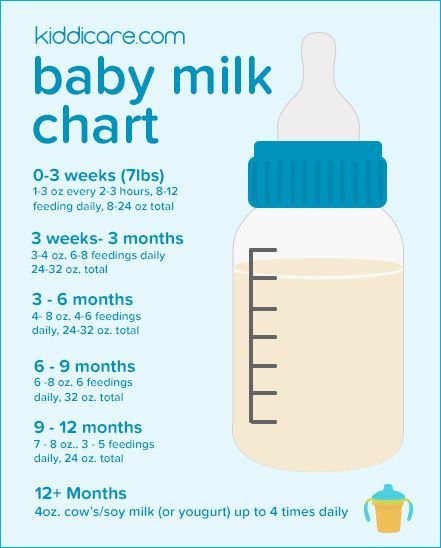
It is also important to take into account that the refusal of nighttime "snacking" occurs gradually: there are very few cases when a child stops eating at night and immediately starts sleeping 5-6 hours in a row. Usually, babies who are used to eating several times a night wake up out of habit, and it will take time to change this routine. First, the baby will ask for food half an hour later than usual, then an hour, a little later - two, and so on. Step by step, over several weeks, night sleep reaches 6-7 hours in a row. This joyful moment can come at 4 months or closer to 12 months: all babies are unique, and it's not scary or unusual for an infant to sleep much longer without food, while an older child keeps waking up to eat.
Advice
Dentists recommend abolishing nighttime feedings for children older than one year, as food leftovers in the mouth can damage milk teeth. This risk is minimal when breastfeeding.
Also, remember that your child has many other important needs. Perhaps he wakes up and calls you, not so much for food, but for comfort and closeness. What could be more reassuring and safer than the caring hands of parents who feed and cradle? feedings.
Perhaps he wakes up and calls you, not so much for food, but for comfort and closeness. What could be more reassuring and safer than the caring hands of parents who feed and cradle? feedings.
How to wean a child from night feeding: expert advice
Many parents are interested in how to properly wean a baby from eating at night so that it does not become a lot of stress for him. Especially if the baby stubbornly refuses to give up night feeding.
- Start the weaning process slowly and gradually. Slowly reduce your nighttime breastfeeding time or give your baby less milk (formula if formula-fed) from a sippy cup. Try to extend the intervals between
Important!
Under no circumstances should the issue of night feedings be turned into a battlefield. The “cry - stop - wean” method loosens the baby’s nervous system and can provoke severe stress.
- Make sure your child eats well during the day.
 Babies become more active as they get older, and if they get carried away playing or walking, they may skip meals or not eat enough and then try to make up for it at night. Therefore, take scheduled breaks during the day for "silent feeding" in a place where nothing will distract the crumbs from eating.
Babies become more active as they get older, and if they get carried away playing or walking, they may skip meals or not eat enough and then try to make up for it at night. Therefore, take scheduled breaks during the day for "silent feeding" in a place where nothing will distract the crumbs from eating.
Advice
If you're not sure your child is eating enough, check their height by weighing them at the doctor's office.
- Try feeding your baby before bed. If a child goes to bed with a full tummy, they are less likely to wake up hungry in the middle of the night.
- Ask dad to get up at night with the baby. If an awakened baby hears your smell or the aroma of breast milk, this can provoke his appetite, even if the baby did not wake up because of hunger. If you sleep in the same room, it's best to move the crib to dad's side.
- Phase out feedings one at a time. When the baby wakes up to eat at night, go to him and reassure him, gently but firmly explain that now is the time to sleep, not eat.
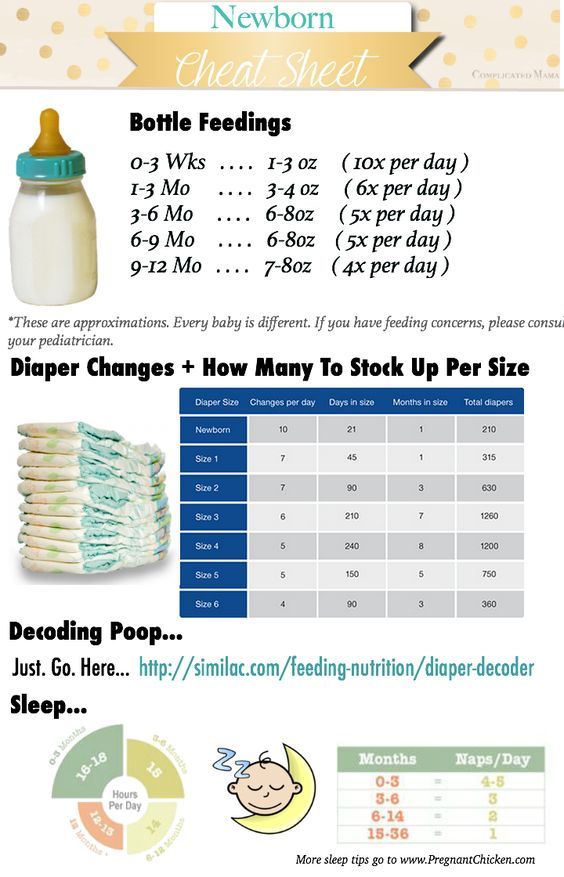 At the same time, pat and stroke the child on the back or tummy, but do not pick him up. Even if the baby does not yet understand your words, he gradually catches the meaning, and your presence and attention will be soothing to him.
At the same time, pat and stroke the child on the back or tummy, but do not pick him up. Even if the baby does not yet understand your words, he gradually catches the meaning, and your presence and attention will be soothing to him. - Try giving your baby water to drink. Babies may wake up at night not from hunger, but from thirst, especially in hot weather or in a room with dry air. If after half an hour the baby wakes up again, feed him, and if not, then he is full and satisfied.
- If the baby has been crying inconsolably when stopping night feedings for several days in a row, stop the attempt and return to your normal routine for a while. Let the baby calm down and start weaning him again in a week or two.
- Do not stop night feedings during the transition period. For example, when you are going to return to work or go on vacation without a baby. If your baby sees less of you during the day, try to hug and interact with him more in your free time. It is necessary that he clearly feels your connection and care, then the baby is less likely to seek solace in the middle of the night.
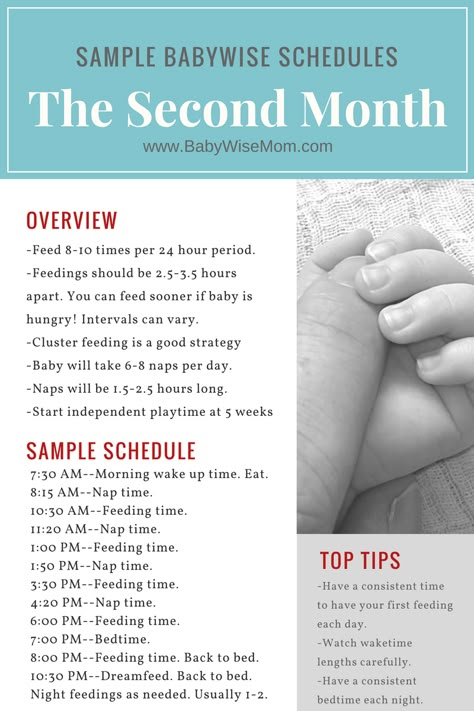
- If the baby continues to require night feeding, try to create conditions in which he does not want to eat. An excellent opportunity appears at 8-9 months, when the baby is already confidently eating complementary foods. To do this, move the usual bowl of porridge to the evening: this way the child stays full longer and may not ask for an extra portion of food at night.
Advice Do not give your baby new foods at night, introduce them only in the morning. Otherwise, you run the risk of observing the reaction to unfamiliar complementary foods instead of sleep. Also, do not give your child meat at night, it is hard to digest, can cause discomfort in the stomach and restless sleep. Also keep in mind that the decision to not feed at night depends in part on how it affects you. If you enjoy breastfeeding or drinking from a cup at night, there is no reason to stop: at a certain point, the baby will stop asking for food on its own. 1. How often should a newborn be fed? A newborn needs to be fed every 2-3 hours, i.e. 10-12 times a day. Further, the intervals between feedings gradually increase to 3-6 hours, and the child gets the opportunity to sleep all night. 2. How much should a child eat per day? The daily "portion" of food for the baby depends on his age and weight. From 10 days to 1.5 months, the baby needs such an amount of food, the weight of which is approximately 1/5 of the child's body weight. From 1.5 to 4 months - 1/6 of the baby's weight, from 4 to 6 months - 1/7, from 6 to 8 months - 1/8, from 8 to 12 months - 1/9. 3. What happens if you don't stop night feedings? Most likely, the child will eventually refuse them himself. Sources Physical development of the child by months Average customer rating 2 customer ratings Snapshot of community ratings 0-6 months Article 0 reviews A few proven methods to trim the belly after childbirth . 0-6 months Article 0 reviews The baby's umbilical cord is the link between the baby and mother throughout life inside the mother's womb. 0-6 months Article 0 reviews Breastfeeding is a process that has an extraordinary impact on the development and health of the baby. Since the relationship between the child and the mother is continuous, everything that has entered the body of a nursing mother will immediately end up in the baby's body. 0-6 months Article The success of breastfeeding depends on several factors: the choice of a comfortable position for mother and baby, certain practice and proper attachment to the breast. 0-6 months Article 0 reviews Lochia is a natural postpartum discharge. They appear immediately after the placenta has passed and last for several weeks until the lining of the uterus is completely healed. What do lochia look like at different stages, what is the norm, and in what cases should you sound the alarm? And is it possible to speed up postpartum recovery? 0-6 months Article 0 reviews Breast milk is the healthiest and healthiest food for a baby. 0-6 months Article 0 reviews The problem of hair loss during lactation is quite common. This process is associated with a number of factors and is generally considered natural. Why does hair fall out after childbirth and how can I get rid of this problem? More on this later in the article. 0-6 months Article Fruit is one of the most important sources of vitamins for humans. Both mother and child need them. What fruits with HB can a nursing mother? And is it true that strawberries and citrus fruits should be excluded from the daily diet? We will try to answer these in our article. Pregnancy Article Human milk oligosaccharides are one of the most enigmatic components whose functions scientists have recently discovered. Find out what oligosaccharides are and what benefits they bring to your baby. 0-6 months Article Breastfeeding is a skill that absolutely every woman possesses at the level of reflexes. The problems faced by modern young mothers are much more often social and informational in nature, rather than physiological. Even a minimum of truthful information and self-confidence will help you start breastfeeding correctly and continue it for as long as your baby needs. 0-6 months Article Intestinal dysfunction after childbirth is a problem that all new mothers face. 0-6 months Article 0 reviews Is it possible to get pregnant during lactation? There is an opinion that this is impossible. However, in practice, such cases are not uncommon. How to recognize the first signs of pregnancy while breastfeeding and what are the risks? More on this later in the article. 0-6 months Article 0 reviews Mother's milk is the main source from which the tiny body receives nutrients and builds the foundation of immunity. 0-6 months Article 0 reviews The resumption of intimate relationships after childbirth is an ambiguous question. On the one hand, after such a long abstinence, you want to have sex as soon as possible, on the other hand, there are a number of nuances that prevent this. When you can have sex after childbirth and what precautions you should take - read further in the article. 0-6 months Article 0 reviews To be or not to be cucumbers and potatoes in the menu of a nursing mother? What vegetables can be eaten while breastfeeding, and which ones should be limited? 0-6 months Article The key to a successful start to breastfeeding is the correct latch on of the nipple. 0-6 months Article 0 reviews The minimum interval between births, according to doctors, is 3 years. Carrying and giving birth to a child, breastfeeding - all this is a burden on the female body. Let him fully recover and consider contraception for breastfeeding. Here are a few methods that might come in handy. 0-6 months Article 0 reviews If breastfeeding is not possible, express with a breast pump or by hand. And we will tell you what and how to store breast milk.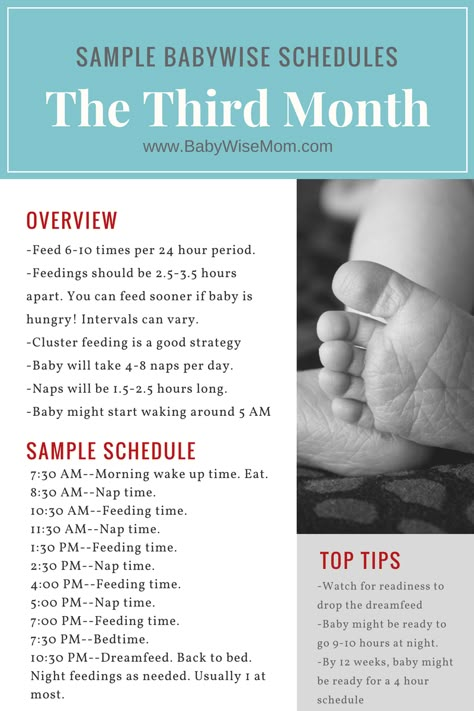 But if you feel that lack of sleep prevents you from living and enjoying motherhood, and the baby is already physically ready for change, it's time to try switching to a daily routine. In any case, you should do what is best for you and your family.
But if you feel that lack of sleep prevents you from living and enjoying motherhood, and the baby is already physically ready for change, it's time to try switching to a daily routine. In any case, you should do what is best for you and your family. FAQ
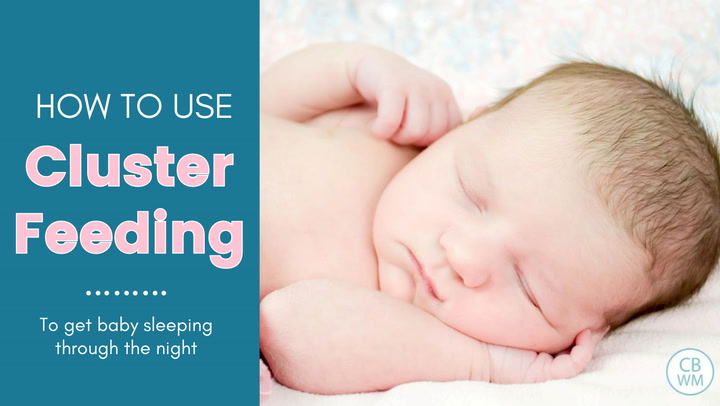 But some pediatricians, notably Richard Ferber [1], warn that unnecessary nighttime feedings can cause sleep problems. Also, food leftovers after late “snacks” can provoke the development of caries in milk teeth.
But some pediatricians, notably Richard Ferber [1], warn that unnecessary nighttime feedings can cause sleep problems. Also, food leftovers after late “snacks” can provoke the development of caries in milk teeth.
Related articles
Latest reviews
Recommended Articles
How to remove the stomach after childbirth: TOP 8 tips
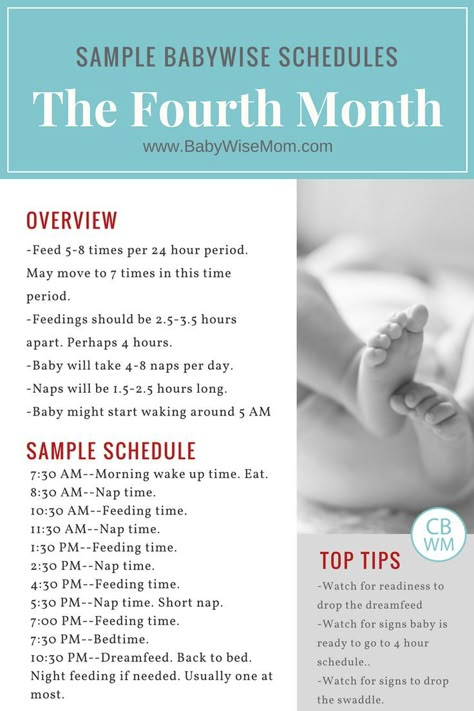 Follow simple recommendations, and soon you will return to your figure, which was before pregnancy.
Follow simple recommendations, and soon you will return to your figure, which was before pregnancy. How to care for the navel of a newborn?
Alcohol while breastfeeding (LB): can I drink it?
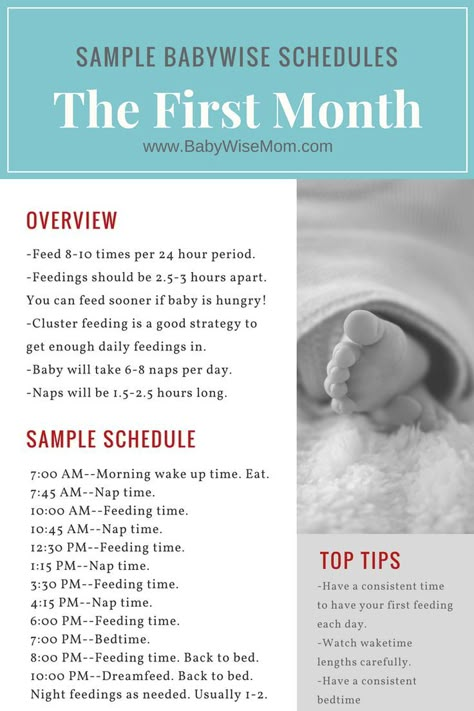
Proper breastfeeding is the key to successful feeding.
Discharge after childbirth, or lochia: what a young mother needs to know
How to increase the amount of breast milk?
 It contains all the substances necessary for a small organism.
It contains all the substances necessary for a small organism. Hair loss during breastfeeding (HB): what to do?
What fruits can a nursing mother: nutrition while breastfeeding

breast milk oligosaccharides
The correct start of breastfeeding is the key to a long and trouble-free lactation
Constipation after childbirth: what to do?
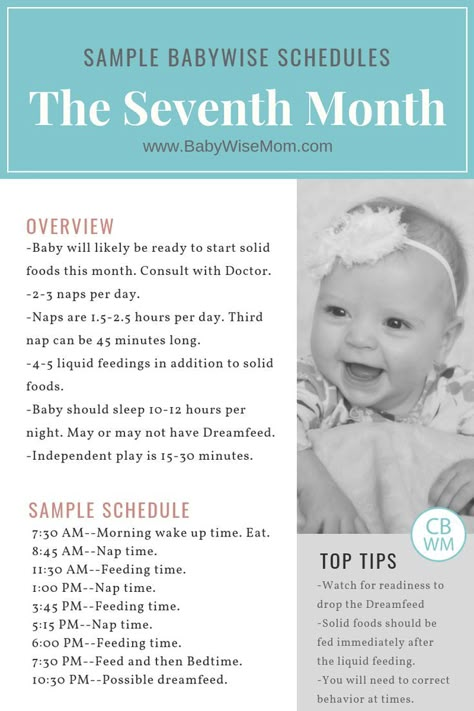 This is not a pathology, but a completely normal, understandable and temporary state of the female body. Why there is constipation after childbirth, when bowel function is restored and what to do to eliminate discomfort - more on this later in the article.
This is not a pathology, but a completely normal, understandable and temporary state of the female body. Why there is constipation after childbirth, when bowel function is restored and what to do to eliminate discomfort - more on this later in the article. Breastfeeding Pregnancy (HB): First Signs
Artificial feeding of newborns: some tips
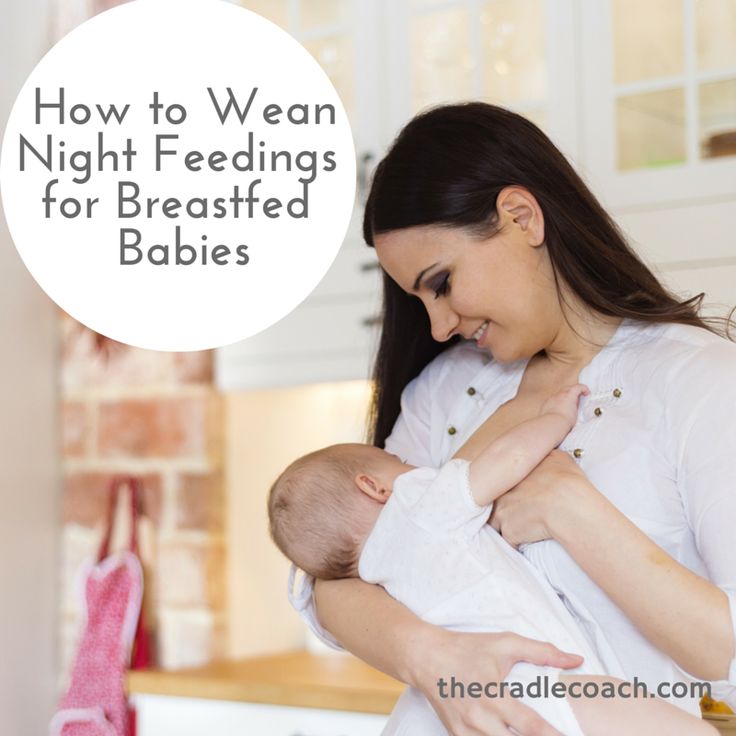 Therefore, breastfeeding is recommended by all pediatricians and neonatologists. This strengthens the bond with the mother and the immune system of the baby. However, it often happens that a young mother refuses breastfeeding. The reason for this may be a shortage or lack of milk or a doctor's recommendation.
Therefore, breastfeeding is recommended by all pediatricians and neonatologists. This strengthens the bond with the mother and the immune system of the baby. However, it often happens that a young mother refuses breastfeeding. The reason for this may be a shortage or lack of milk or a doctor's recommendation. When can you have sex after giving birth?
What Vegetables Can I Eat While Breastfeeding?
How can I help my baby latch onto the nipple?
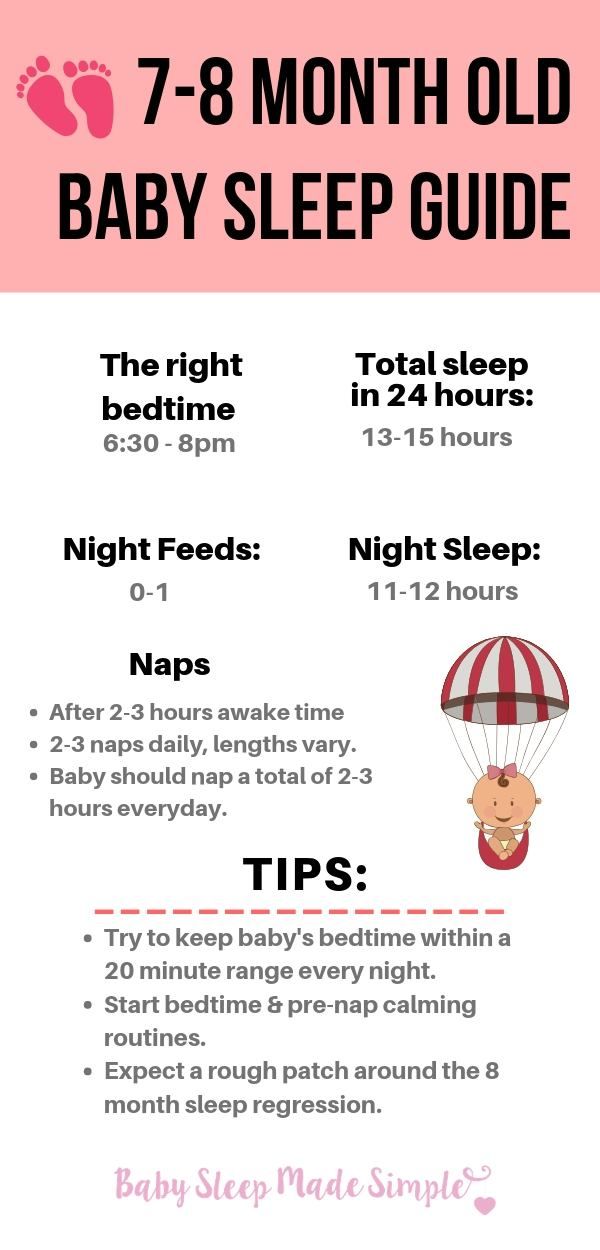 Follow tips to help your baby latch onto the nipple and floor properly
Follow tips to help your baby latch onto the nipple and floor properly Contraception during breastfeeding (HB): TOP-7 methods
Storing breast milk: TOP 5 tips on how to store it
